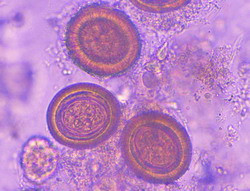An intervention to counter the neurotoxic effects of a chemotherapy treatment for cancer has been withdrawn after research showed it was ineffective.
This resulted in big savings in the cost of the intervention and in treatment time by nurses at Auckland City Hospital’s medical oncology service, one of the largest cancer treatment centres in Australasia.
Medical oncologist and doctoral student clinician Catherine Han carried out the research at The University of Auckland and Auckland City Hospital as part of her work investigating the origins of neurotoxicity from oxaliplatin chemotherapy treatment. Her research is funded for three years by a HRC Clinical Research Training Fellowship for $250,000 awarded in 2012.
Research into the effectiveness of the calcium and magnesium infusions given to cancer patients to counter the neurotoxic effects of chemotherapy treatment with oxaliplatin showed it was not working.
“Catherine’s research showed clearly that the magnesium and calcium infusion does not work, and has led to a change in clinical practice in our cancer treatment centre at Auckland Hospital,” says her research supervisor, Associate Professor Mark McKeage who is a clinical pharmacologist and cancer specialist, and a co-director of the University-based Auckland Cancer Society Research Centre.
“The infusion has been used as a treatment protocol in many hospitals worldwide, but with variable results in clinical studies,” he says. “It was implemented into clinical practice some time ago as a trial therapy to treat the major problem of neurotoxicity from oxaliplatin treatment, on the basis of the evidence available at the time.”
It was accepted that the evidence was incomplete and further clinical trials were mandated. This study was one of those trials and on the basis of the new evidence, the calcium/magnesium intervention was withdrawn.
At the same time as Catherine’s work was published in the journal BMC Cancer, the Mayo Clinic in the United States also reported a study showing the intervention does not work. Both sets of results showed that the treatment had no neuro-protective effects for the oxaliplatin treatment.
“This research not only makes a difference clinically with the change in practice, but also saves precious healthcare dollars,” says Dr McKeage.
Auckland’s medical oncology service did about 1200 oxaliplatin infusions in the past year, some being multiple cycles on the same patient. This is double the number done five years ago and increasing each year, he says. On that basis, ending the calcium/magnesium treatments will save the hospital more than $17,000 each year as well as about 800 hours of nursing time.
News article courtesy of The University of Auckland
